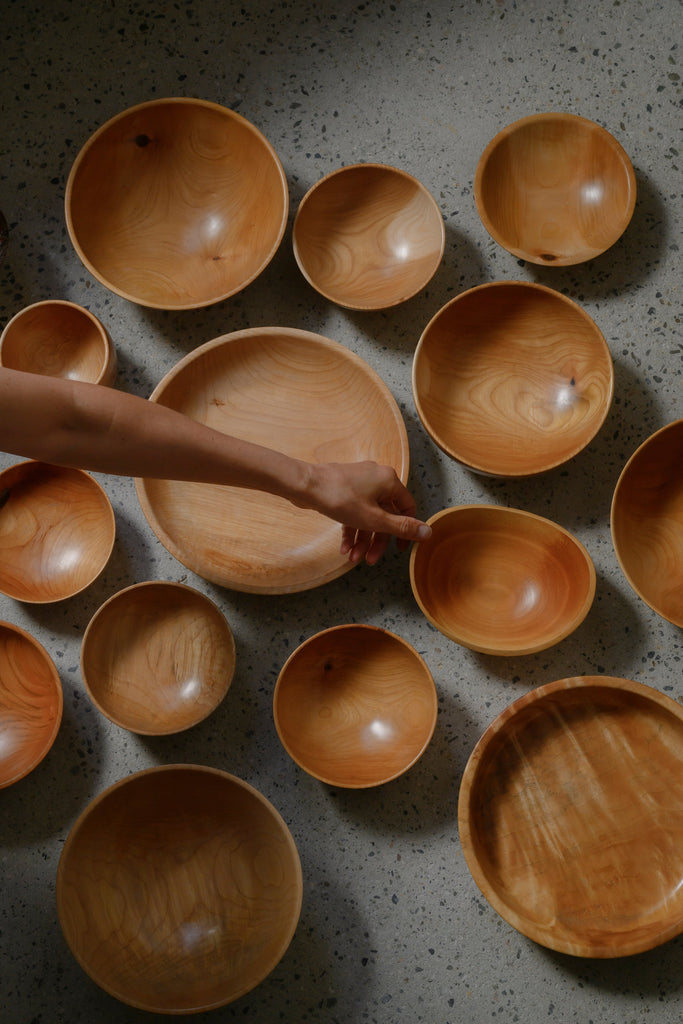
September 14 2025
Welcoming Hiroshi Kawai to the Shop
Born in Japan’s Ibaraki Prefecture and raised in Yokohama, Hiroshi left his home country at the age of 24 to travel the world. A peripatetic decade followed as he meandered throughout Australia, the United States, Europe, and Asia.

It was during Hiroshi’s time in New Orleans that he was offered an opportunity to train as a sushi chef. He worked in a number of restaurants in the U.S. until he returned to Japan with his wife Miju and their two young daughters in 1987. The family operated a bento lunch shop in Yokohama before immigrating to Canada in 1991

Settling in British Columbia’s Lower Mainland, the Kawai family soon established themselves in Vancouver’s burgeoning culinary scene. They owned and operated Kokoro Japanese Restaurant in North Vancouver before moving on to run Hiroshi’s Sushi Creations on Oak Street in Vancouver. Their third concept Basho, a Japanese cafe in the Hastings-Sunrise neighbourhood, earned a devoted following of locals drawn to the Kawais’ delicate baked goods and homestyle lunch sets that showcased their dedication to working with quality ingredients and simple techniques.

In 2016, Hiroshi and Miju stepped away from the physical grind of restaurant life and closed Basho. But Hiroshi, a spry and fastidious man by nature, was not content to slow down in the traditional, post-retirement sense. Inspired by his wife’s maker practice – textiles being Miju’s focus – and the forested environs of his North Vancouver home, he immersed himself in learning how to build and create objects with wood.
Hiroshi’s approach to both cooking and wood crafting is rooted in monozukuri — literally, the “act of making things” – a term used to describe the Japanese principle of making with care, precision, and pride. Whether preparing a dish or shaping wood, the same devotion to craft, natural ingredients, and attention to detail guides his hands.

Working solely with reclaimed wood, Hiroshi reflects the Japanese value of mottainai – a deep respect for resources, time, and effort and a mindful approach to consumption of and spiritual value of things. This mindfulness reveals itself in Hiroshi’s methodical process of taking a bowl from wood to table. Demanding time and patience, the rough cut wood must dry, or “sleep”, for a year before it is ready to be turned or sanded.
Hiroshi encourages the wood to speak to him and allows himself to take the perspective of the material, envisioning what the wood wants to become and how it can be most effectively utilized. Holding one of these bowls in your hands reveals a flowing wood grain, rich in texture and movement, with hues from golden honey to warm amber. Its weight feels solid yet balanced. Subtle tool marks along the edges speak to Hiroshi’s craftsmanship and care in every step of its creation.

Each bowl is imbued with an origin story – including some with roots on Nexwlélexwm, or Bowen Island. Several bowls in his collection are made of salvaged wood from trees used in the construction of Kitoki Inn, the Bowen-based Japanese boutique accommodation owned and operated by his eldest daughter Mitsumi, creating an enduring circularity and connection between people, place, and nature.
At his current home in the Japanese coastal town of Chigasaki, about an hour’s train ride from Tokyo, Hiroshi can often be found in his workshop tinkering with his latest project: a bird feeder stand made using leftover wood from the build of their other new house. His other passion: Learning to surf, at the age of 75. Nothing makes him feel more alive, he says, than being in the ocean, with Mt. Fuji in the distance, surrounded by nature.
